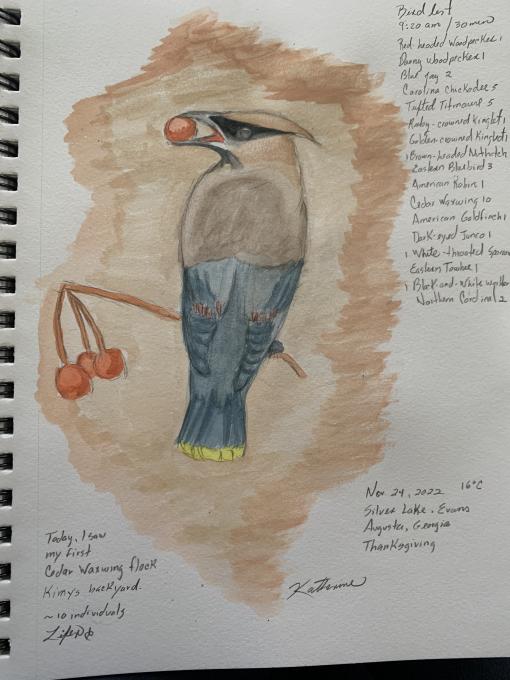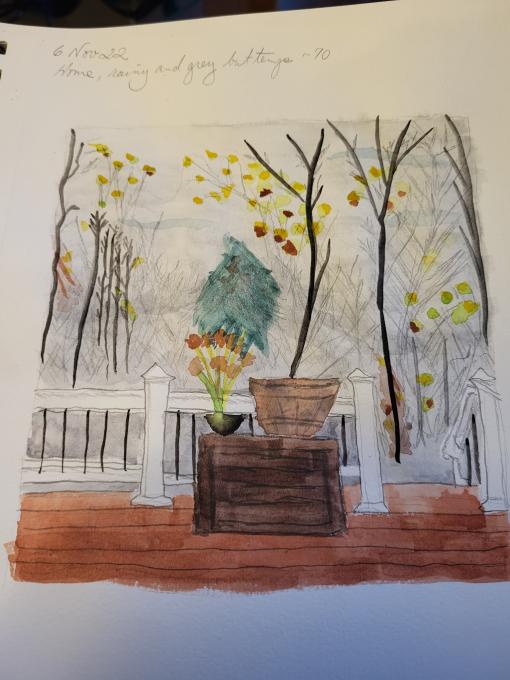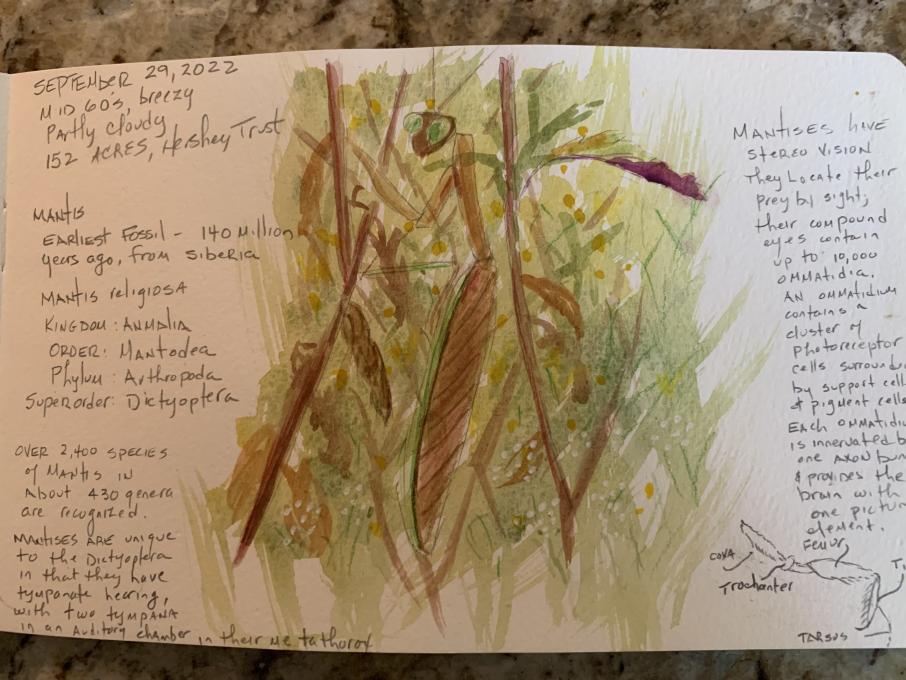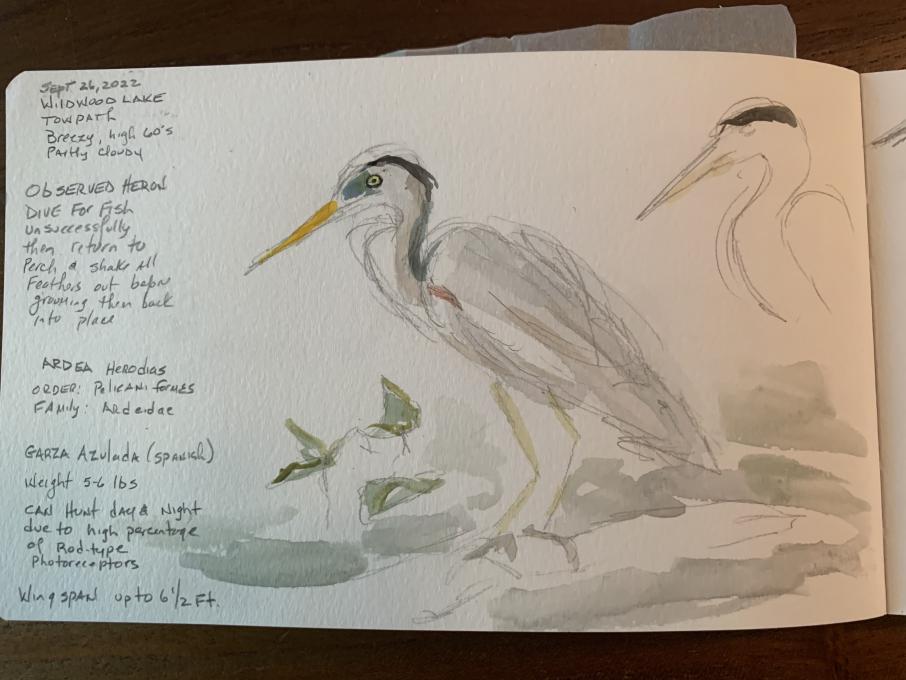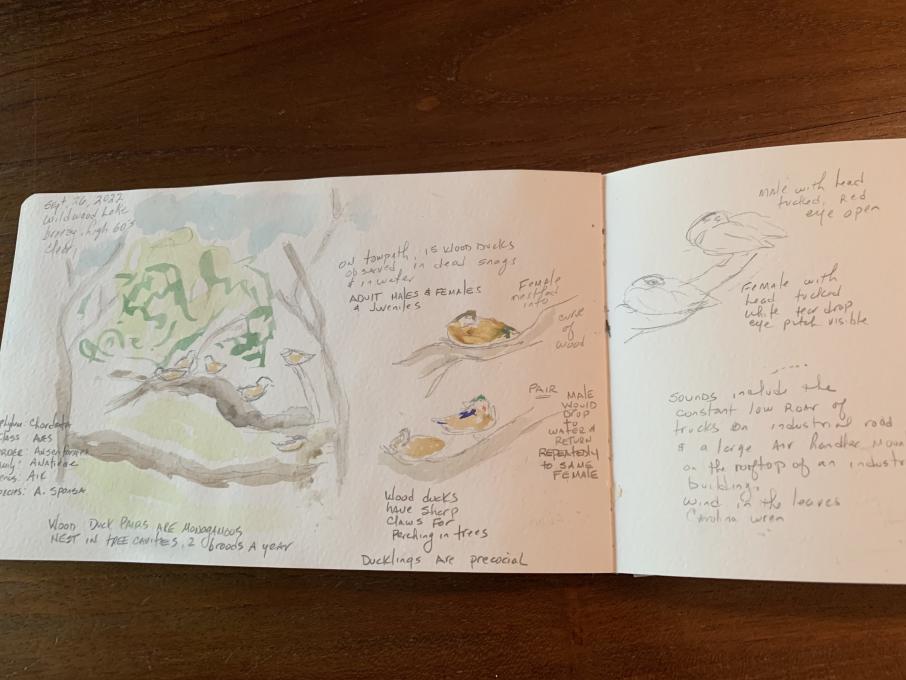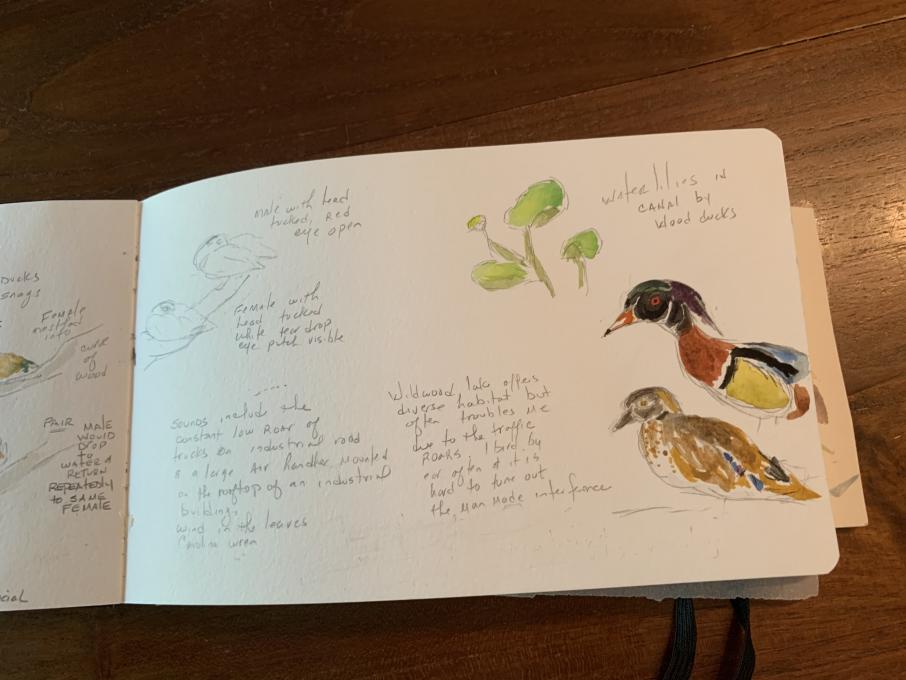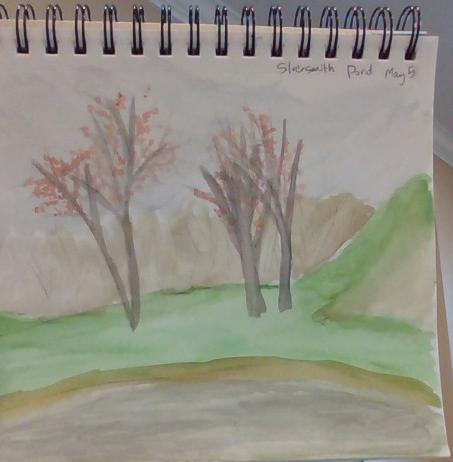The Cornell Lab Bird Academy › Discussion Groups › Nature Journaling and Field Sketching › Filling Your Sketches with Color
-
Bird AcademyBird Academy1. One of the challenges in field sketching is organizing your materials in the field. How are you managing your materials? Any tips to share? 2. Share how you think you are integrating your new drawing and watercolor skills with your science practices such as recording observations, asking questions, and identifying themes. As always, feel free to share a sample journal page! 3. Share one of your journal pages and let's see if other students can identify some of the drawing or painting techniques you used. Comment on those you recognize in other students' work as well.You must be enrolled in the course to reply to this topic.
-
Wash and blending getting easier with practice. The examples to follow are extremely helpful. Letting go of judgement and more having fun.

-
I have a dedicated bag for all of my materials, with paper towels, watercolors extra pencils and lead, etc. It is grab and go. In the field, I usually spread out on a bench or on the grass. Many people use a camping chair, but I feel like it is too wobbly. Often, I will sketch in the field, make notes and then use the watercolors later when I return home. In this case, I picked up the crab molt from my beach after sketching brought it home so I could make more notes and color it in. I am happy with the results.

-
It’s still a bit too wintery to be sitting outside so I have been practicing techniques inside and attempting to copy various photos and paintings. I need much more practice but am enjoying the learning process.

-
I have not been able to sketch in the field yet as it is winter (Mid-February), but I noted some good suggestions from other users below (folding stool, cotton sock etc). Instead, I practiced with a reference picture of a bay-breasted warbler, that spent the 2022 summer in the woods back at the cottage. I followed the same steps that Liz used to paint the waxwing. I had fun mixing this palette of colours, and adding a leafy background.

-
What a neat perspective......looking up
-
-

-

-
I observed some Sandhill Cranes at work recently and did some gesture drawings of their behavior. I followed it up by sketching a sandhill crane head, and then refining and coloring it using a reference photo. It was fun to observe some of their behaviors, and coloring the bird head really helped me recognize all of the color combinations found on them, especially the eyeball

-
1. I am still not confident in completing the field sketching in the field, so I've been using my backyard where I can have a chair and a table. Otherwise I have to leave painting to an indoor activity. 2. I've been trying to still notice as I draw, like the color of new growth even though the majority of the leaves in the Winterberry Holly are falling off and that is a single berry that was produced. I need to get better about creating hypotheses for my observations. 3. I tried some of the "dry brushing" on the bark, but I had to use a lot of layers.

-

-


-


-
my Cedar Waxing painting...

-
I was guiding a wildlife boat tour yesterday morning and took the opportunity to arrive early at dawn and try a landscape sketch and painting. For my first time painting with watercolors in the field, I settled into the experience fairly quickly and just gave it a go! I was surprised at how it felt natural organizing my materials on my lap, I thought it would be more awkward but it was comfortable and easy to handle. I sat on a small folding tripod stool and had my sketchbook on my right leg and my watercolors on my left leg, and a paper towel to clean my brush tucked underneath the watercolors, and pulled it out when needed. Once I got into the painting I recalled and used many of the color-mixing and watercolor techniques Liz talked about, and I was surprised at how many different colors I made in a short time. My sketchbook pages are a little small, but if I had the space I would have noted more birds I heard while I was sketching and painting. I finished most of the watercolor work in the field and then did some additional refining at home (I took some pictures while I was there for reference).

-

-
May 2, 2023, Connecticut. I have been very happy with this Koi watercolor set, and find it quite handy to use in the field. I've noticed in the videos that Liz used the pallet in different positions, so I tried that in my field sketching today. If my sit spot is close to the car I bring a folding chair, otherwise I choose a spot with a large rock or something to sit on. Other than the paints and water brush, I bring a pencil, eraser and my binoculars (and a rain jacket!). I love how simple this kit is. Somebody below suggested the cuff of a cotton sock worn around the wrist for blotting the brush, instead of paper towel (which inevitably blows away!). This sounds like a winner - I'll try it!
 I'm usually overwhelmed when I sit down to a landscape, and found Liz' suggestion to define the planes and layers you see and to gradually block in the areas of color were really helpful. And for some unknown reason today, I was also able to control the waterbrush better, and get some fine lines. Win, win, win! I loved the dramatic sky, but it changed so quickly. I'm glad I took a photo when I first sat down, because the light was so different by the end. This sketch was start to finish 45 minutes - enough time to capture the mood of the moving river and the heavy clouds before the rain returned!
I'm usually overwhelmed when I sit down to a landscape, and found Liz' suggestion to define the planes and layers you see and to gradually block in the areas of color were really helpful. And for some unknown reason today, I was also able to control the waterbrush better, and get some fine lines. Win, win, win! I loved the dramatic sky, but it changed so quickly. I'm glad I took a photo when I first sat down, because the light was so different by the end. This sketch was start to finish 45 minutes - enough time to capture the mood of the moving river and the heavy clouds before the rain returned!

-

-

-
Does anyone have any tips on what I can use to hold my watercolor paper, palette, etc while painting outside? I see from the video that Liz has all of her gear propped on something--but what? Thanks, James
-
 Saw some of these by the roadside yesterday, sketched & painted one from a reference photo today.
Saw some of these by the roadside yesterday, sketched & painted one from a reference photo today. -
Cool! 😀
-
-
I decided to draw and paint the Cedar Waxwing. Yesterday was the first time that I saw one. So, I though that it was a good opportunity to start practicing looking the picture on the video.

-
I'm laid up with a sore leg, so I haven't done watercolor in the field yet. Drawing is relatively easy, but you can still do a lot of juggling if, like me, you have the journal, binoculars and camera at the same time, not to mention incidentals and water. I have a courier's bag I use for all that. Today I did my first attempt at a landscape while looking over my deck to the woods out back. It was a dreary, rainy, grey day, just perfect for watercolor. Came out pretty nice! The lone evergreen is too green, but that's learning for you. I ended up doing mixed media, I guess you'd call it. I don't have the control to do really fine detail with the brush, at least not yet, but pencil worked great.

-
Leslie, this painting makes me smile. I see a place you love, I see home. Beautiful.
-
-
I continue to feel clumsy balancing the journal and implements. Considering investing in a folding chair that includes a side table. I take photos and complete work at home incorporating additional information.

-




-
I like to take the absolute minimum of things that I need to draw. When I did the picture in the photo below, I took a pencil, eraser, water brush, one paper towel, and my 12-colour mini watercolour travel set. It worked pretty well. The only problem was there were about 10 aggressive geese who wanted to eat my supplies so I kept moving around so they wouldn't bite me. I did wet on wet for the water, sky, and grass and feeble attempts at dry brush for the buds on the trees. As you can see I need practice with it. I find it especially hard to do dry brush with my water brush because some water always leaks out and runs down and ruins the dryness! Regular brushes work better for that in my opinion.

Read More:
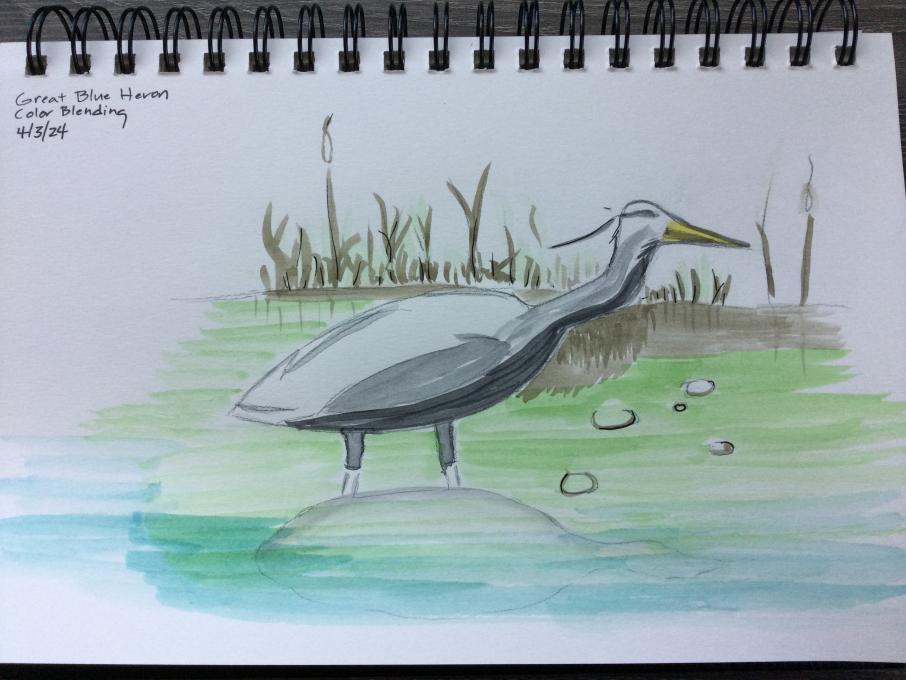
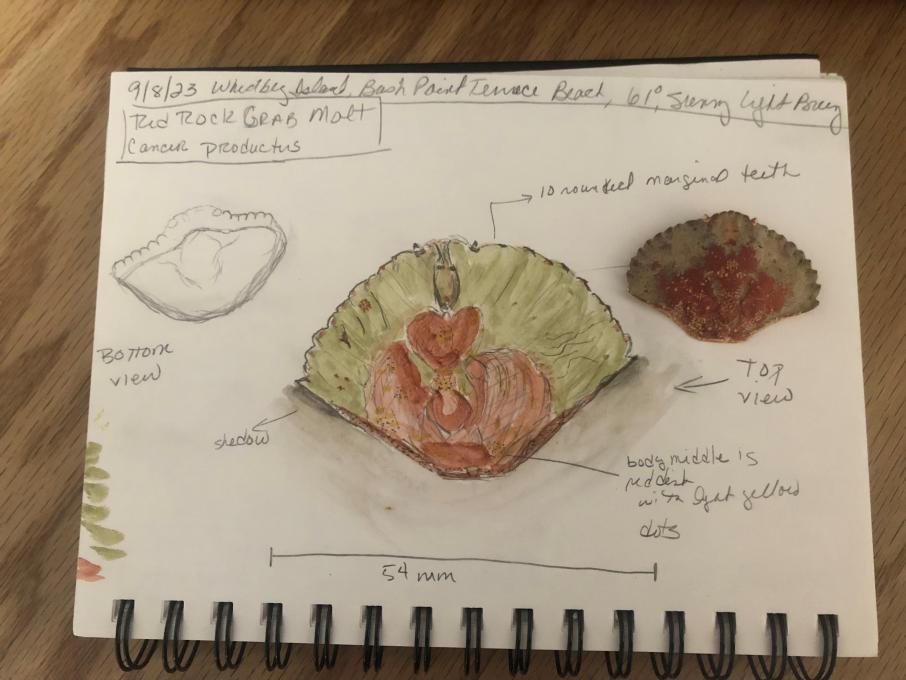
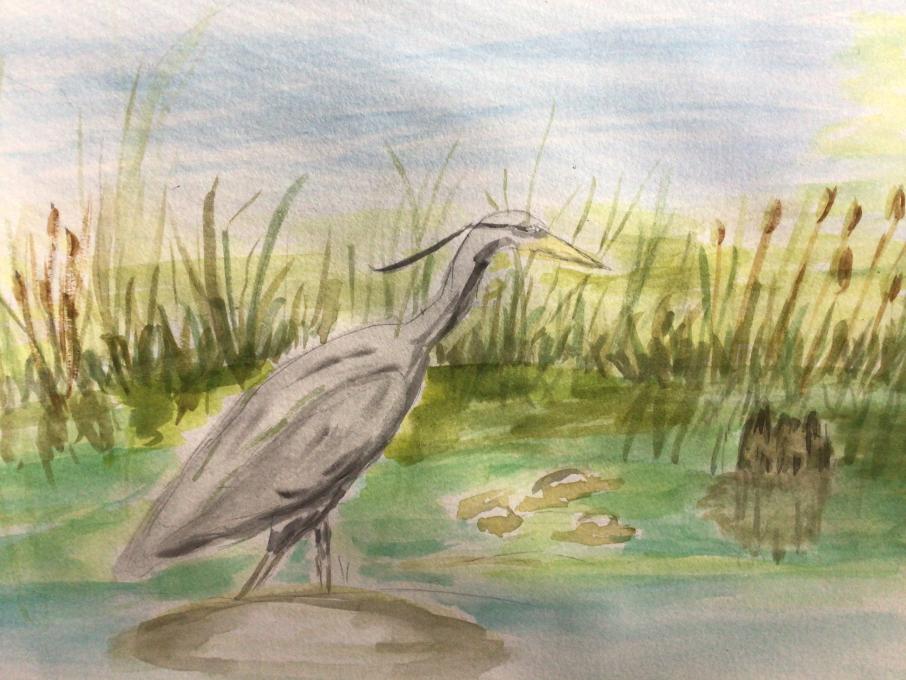
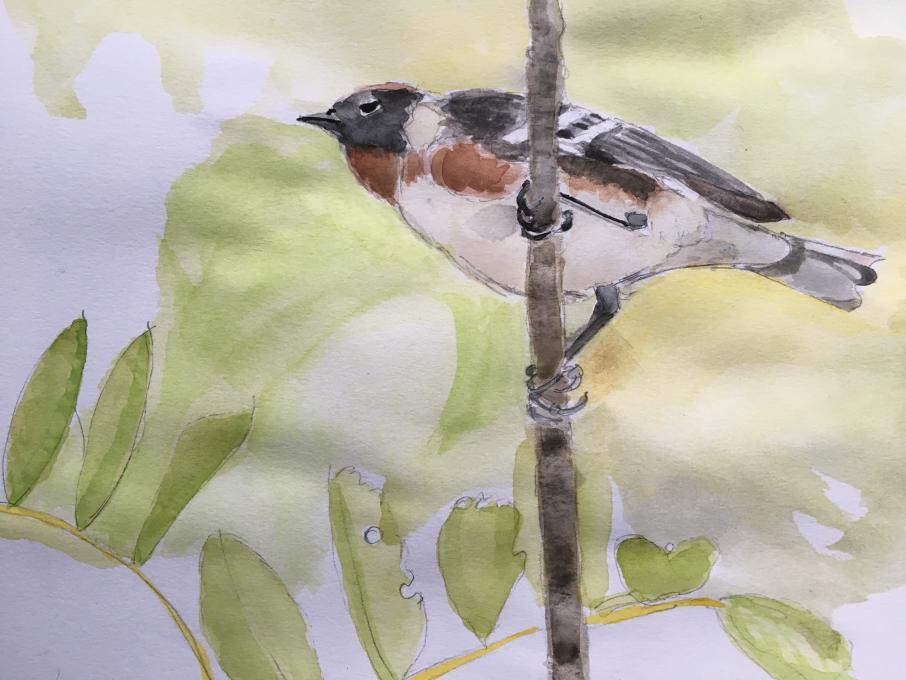
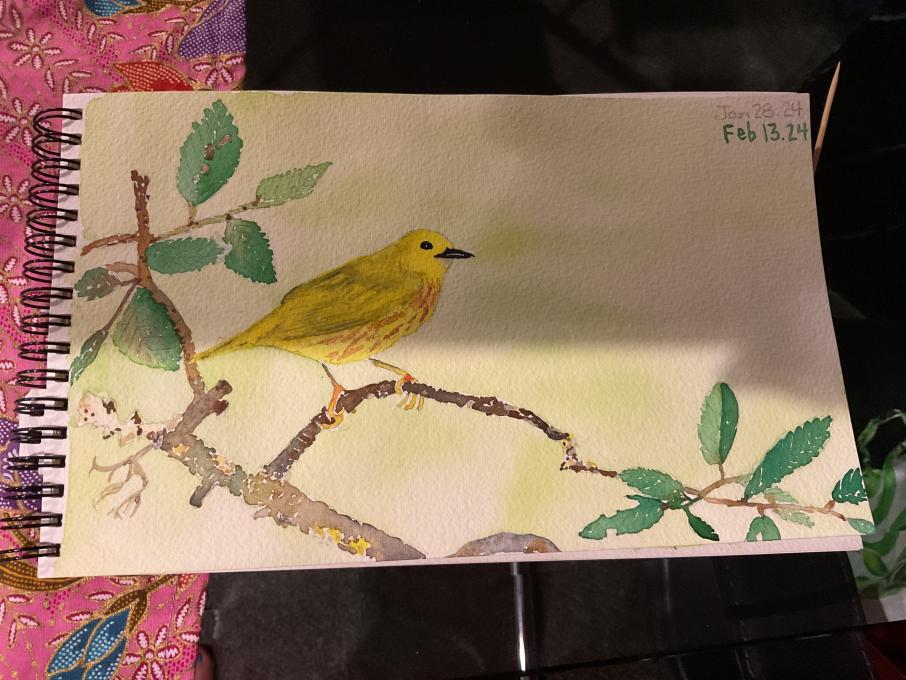
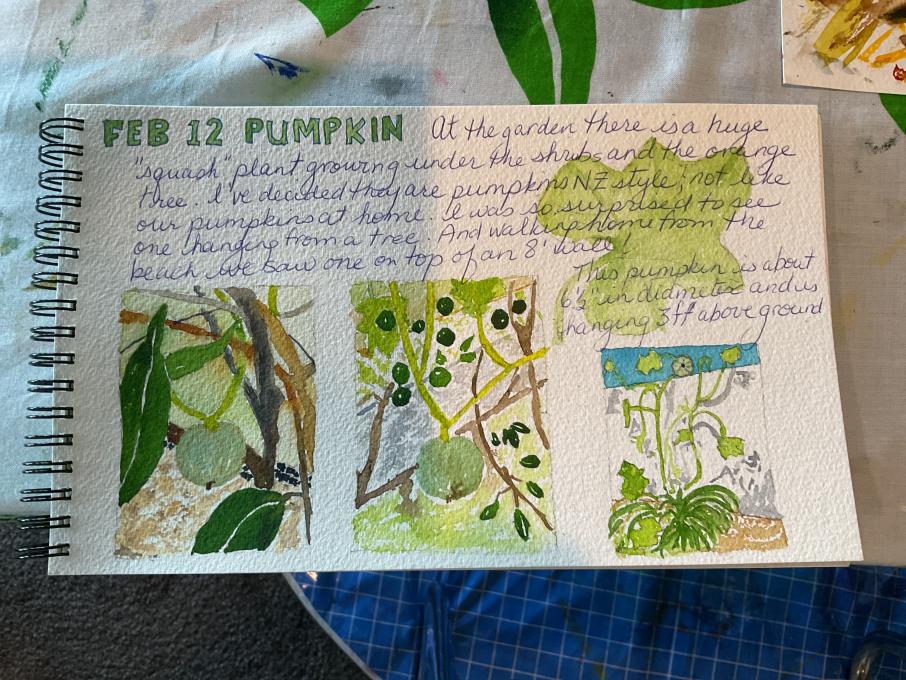
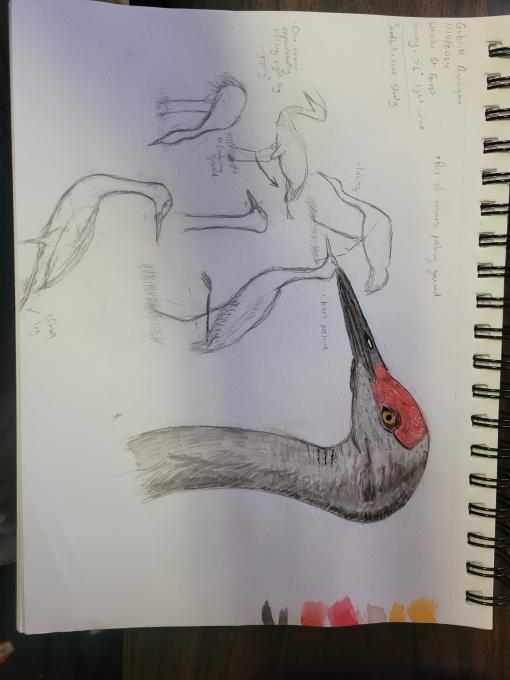
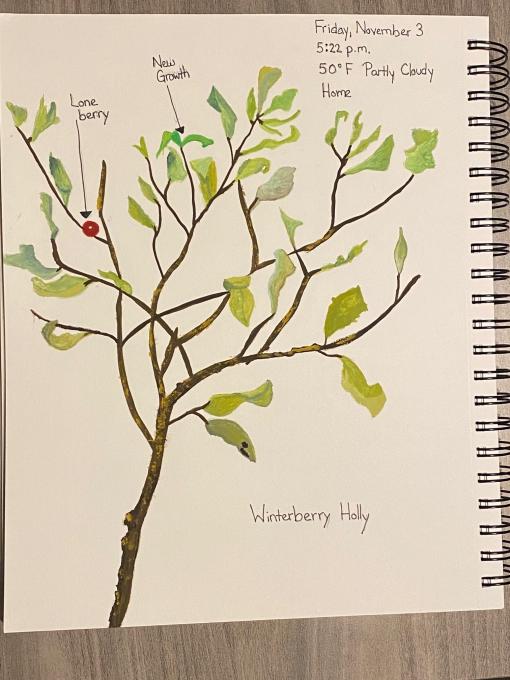
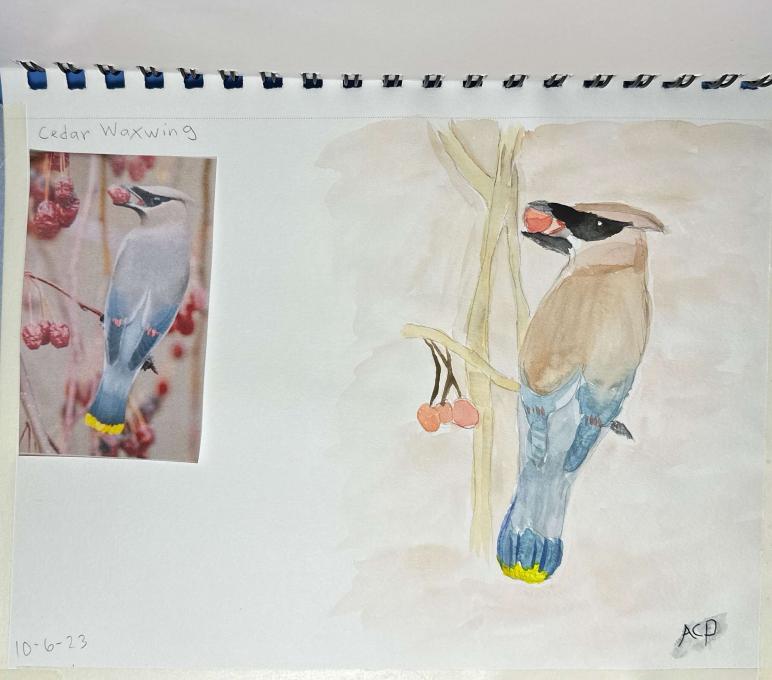
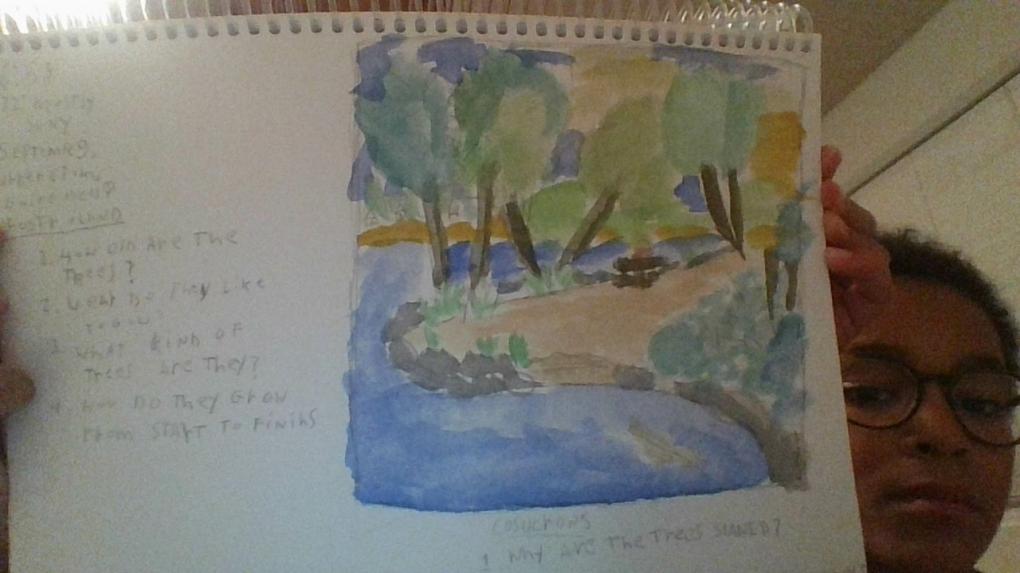
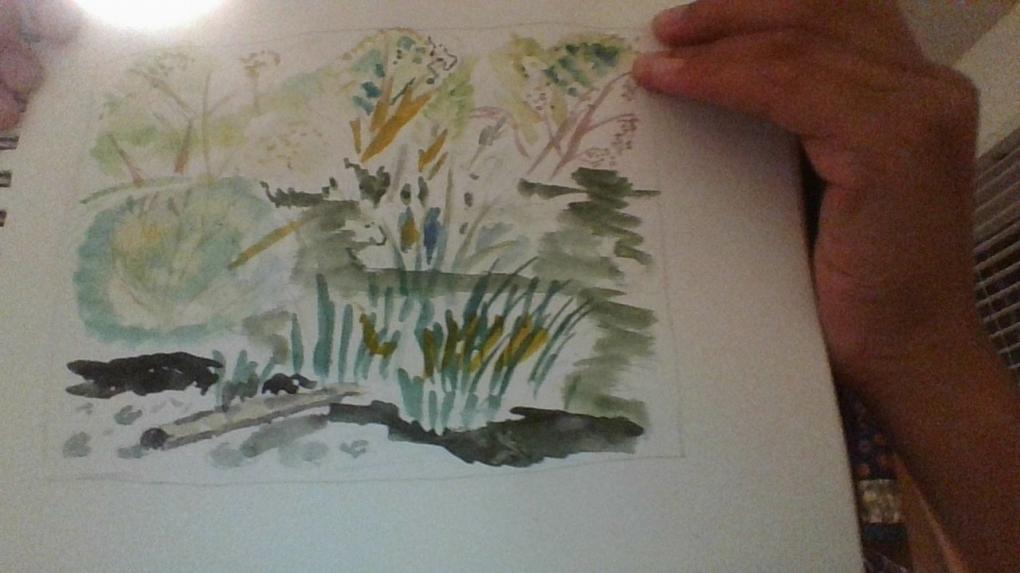
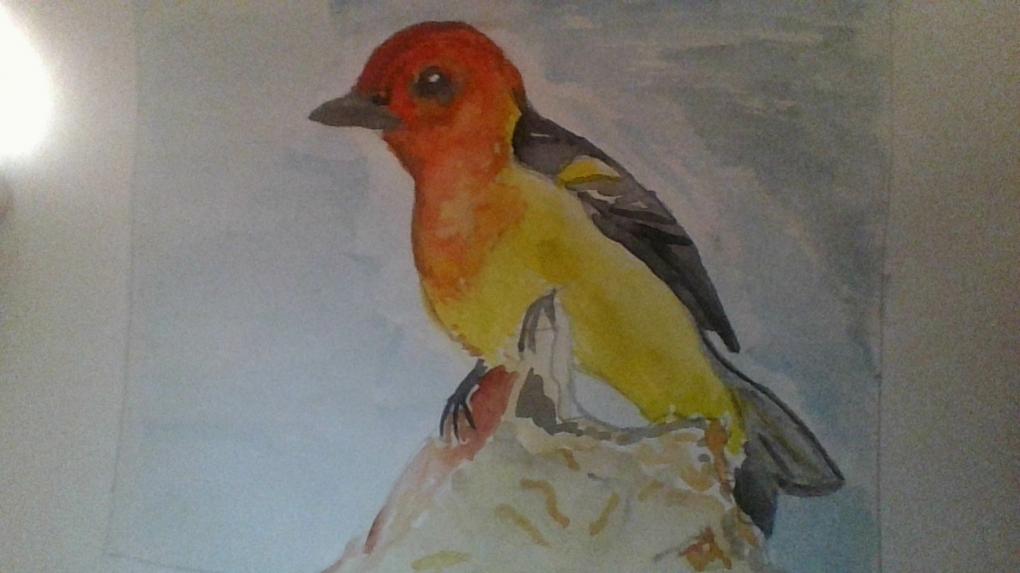
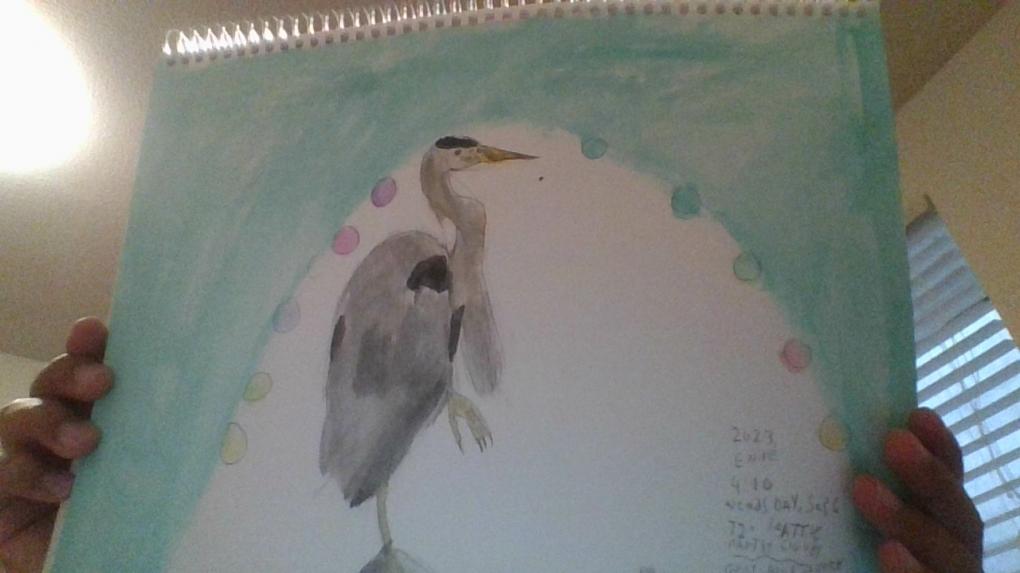
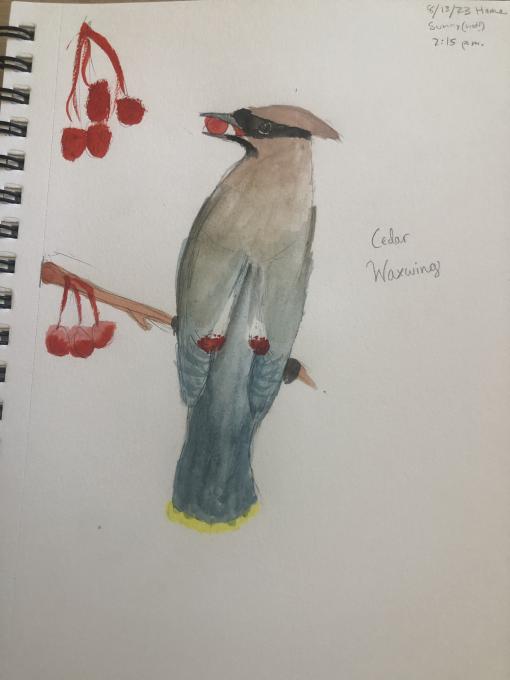
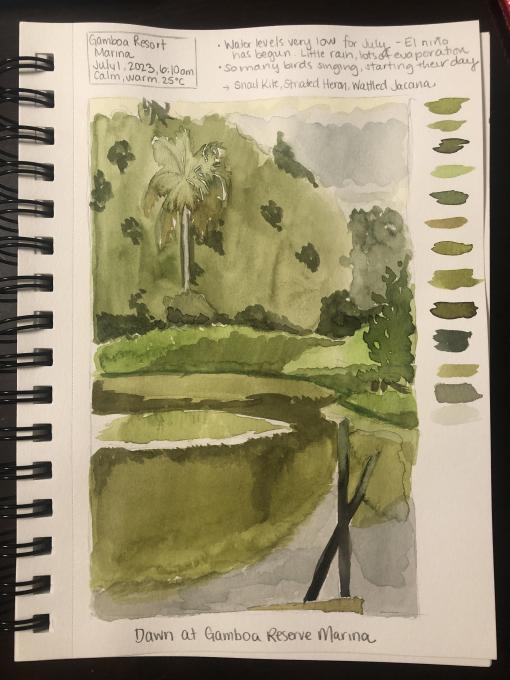
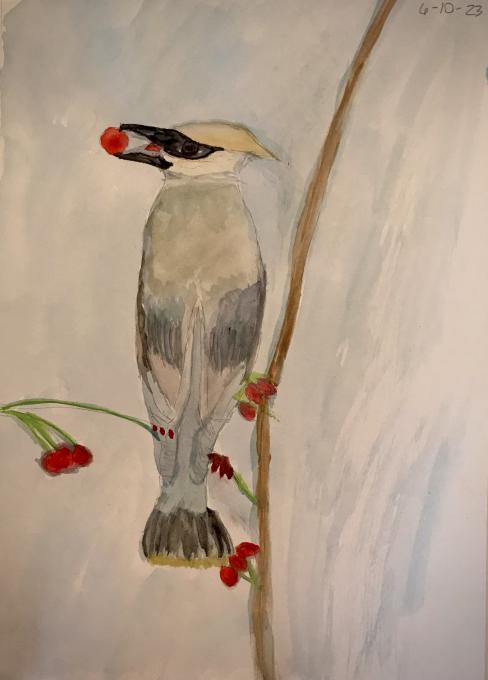
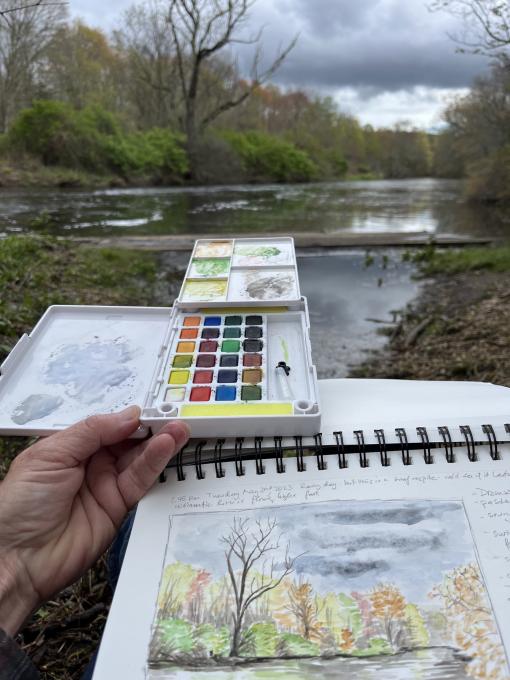 I'm usually overwhelmed when I sit down to a landscape, and found Liz' suggestion to define the planes and layers you see and to gradually block in the areas of color were really helpful. And for some unknown reason today, I was also able to control the waterbrush better, and get some fine lines. Win, win, win! I loved the dramatic sky, but it changed so quickly. I'm glad I took a photo when I first sat down, because the light was so different by the end. This sketch was start to finish 45 minutes - enough time to capture the mood of the moving river and the heavy clouds before the rain returned!
I'm usually overwhelmed when I sit down to a landscape, and found Liz' suggestion to define the planes and layers you see and to gradually block in the areas of color were really helpful. And for some unknown reason today, I was also able to control the waterbrush better, and get some fine lines. Win, win, win! I loved the dramatic sky, but it changed so quickly. I'm glad I took a photo when I first sat down, because the light was so different by the end. This sketch was start to finish 45 minutes - enough time to capture the mood of the moving river and the heavy clouds before the rain returned!
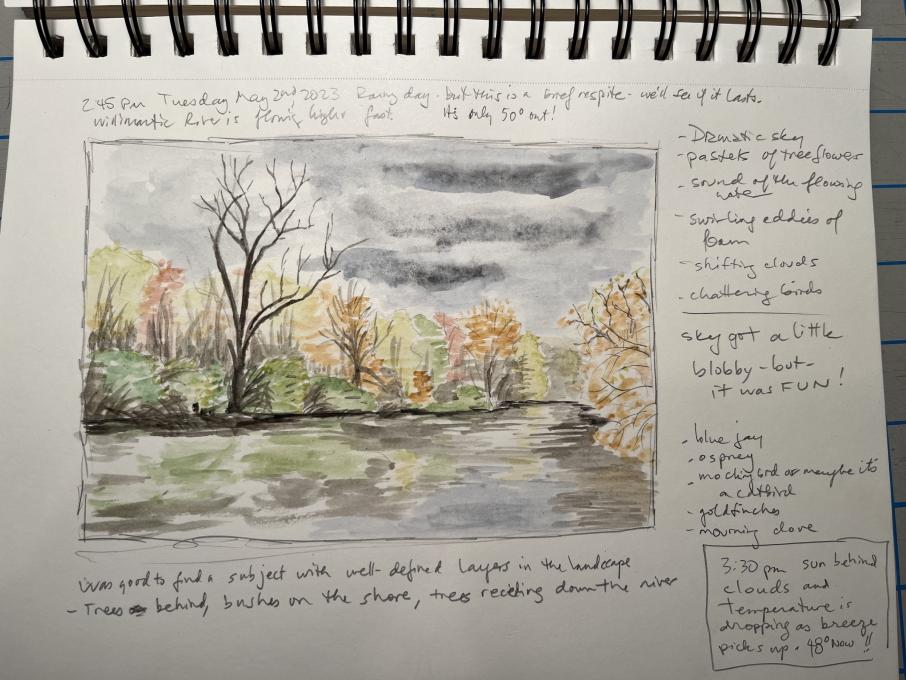
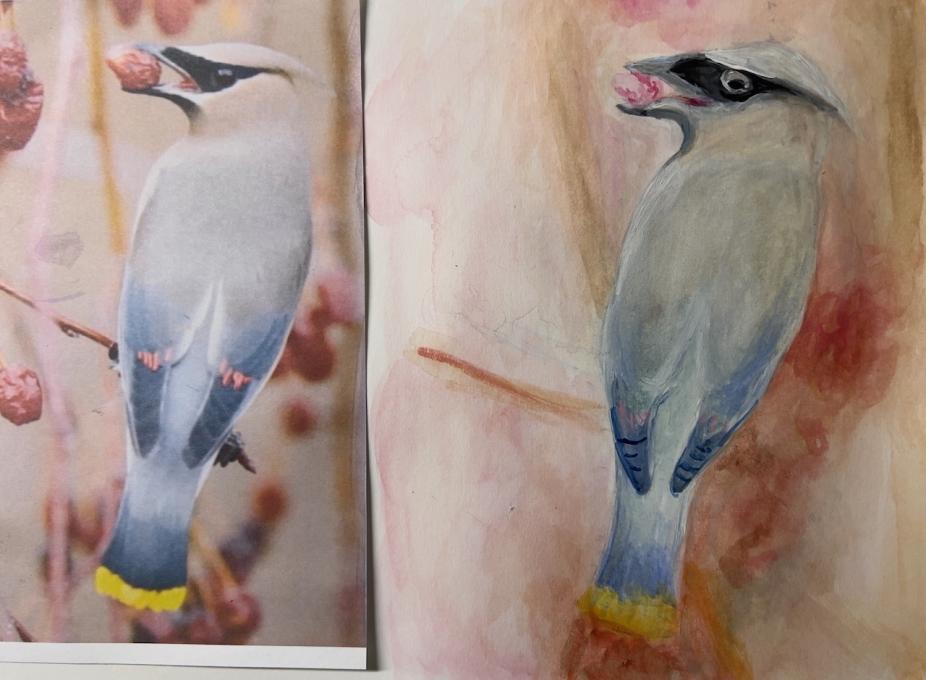
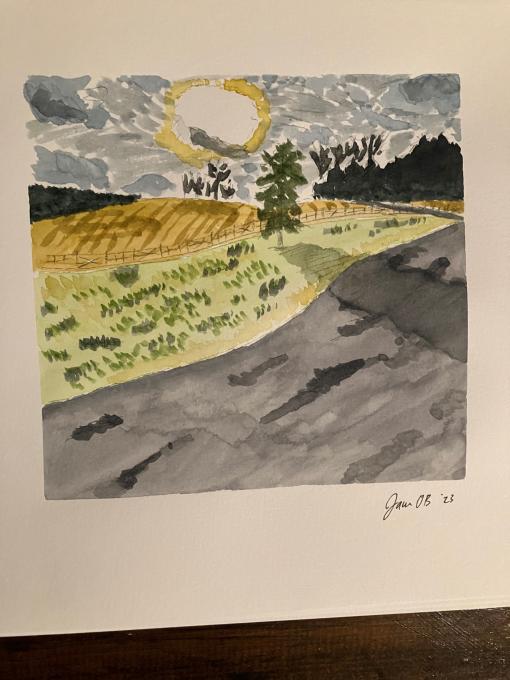
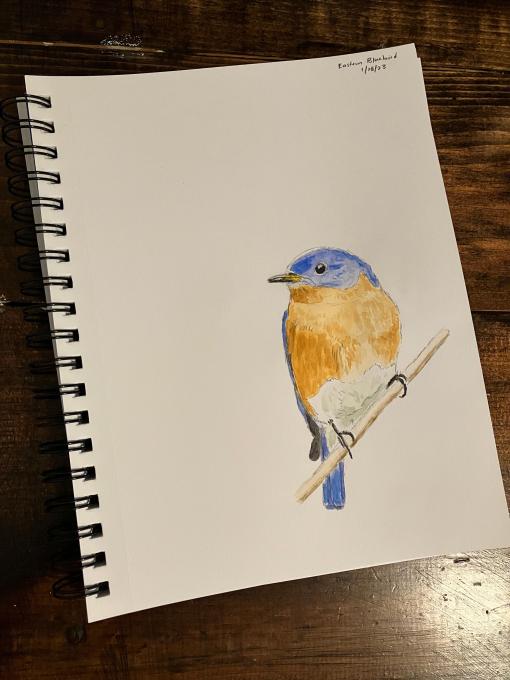 Saw some of these by the roadside yesterday, sketched & painted one from a reference photo today.
Saw some of these by the roadside yesterday, sketched & painted one from a reference photo today. 